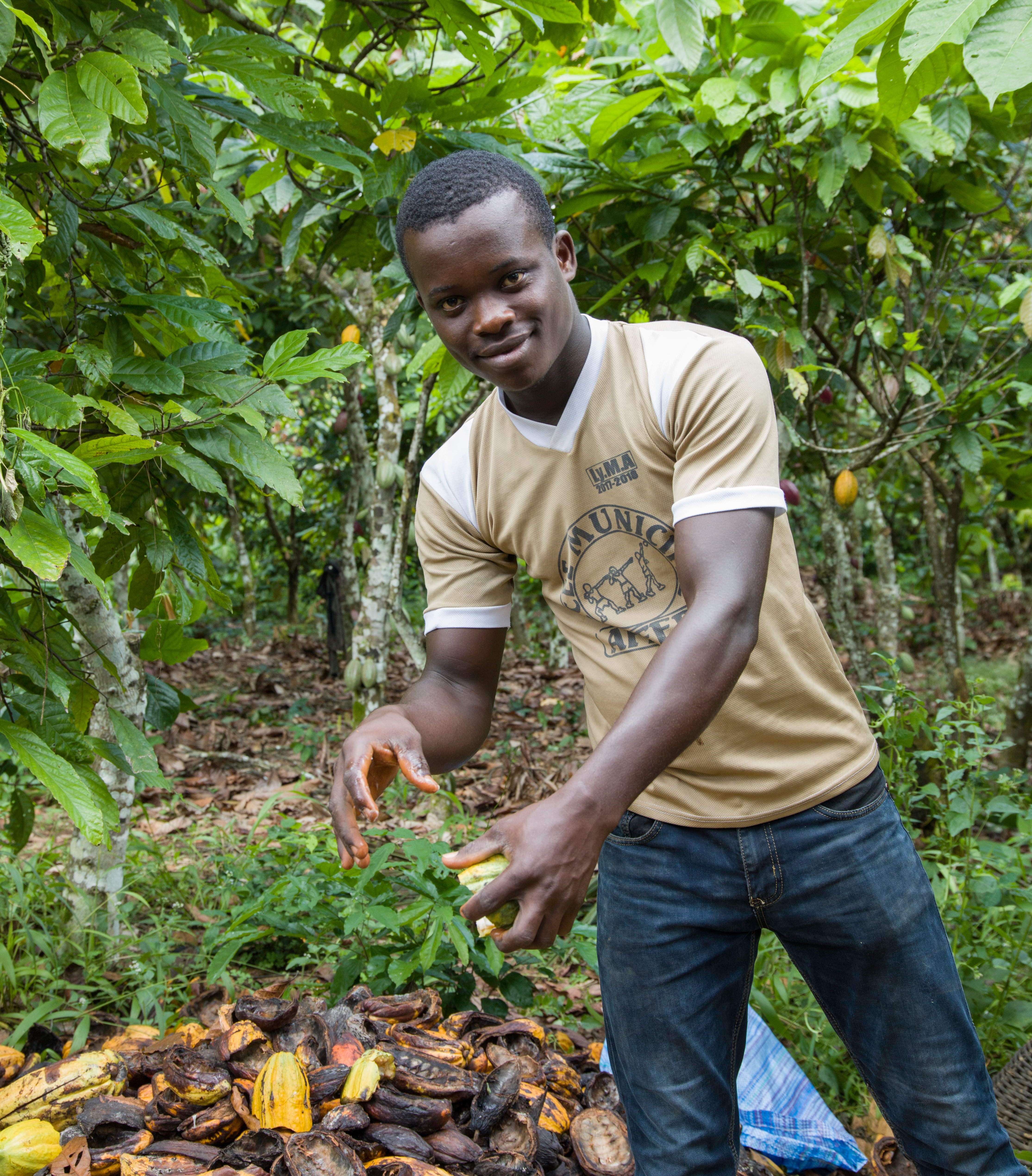IECD: when professional integration rhymes with personal development

For the IECD, one of the most basic human rights and needs, so fundamental that it is included in the Declaration of Human Rights, is access to work. Since 1988, the IECD has been working “to enable every person to have the means to access a job that will be rewarding and that will allow him or her to develop”. These are the words of Alexis Beguin, the organisation’s Director General, who has spent fifteen years with the charity.
“We are just starting to develop our actions in France”, he continues. “But in all the countries where we work, whether in Africa, the Middle East or Asia, we always make the same observation: a young person, girl or boy, will only be able to build themselves up, help their family or carry out a social project from the moment when they have a place in society... and this place in society is very often found through work”.
THEORY, PRACTICE AND PERSONAL DEVELOPMENT
For a long time, the IECD has been providing long-term support through long courses, lasting two to three years, leading to a state diploma. This is the case, for example, for the HCTC hotel school opened in Thailand, the rural and agricultural entrepreneurship training centre in Côte d’Ivoire, or the Graines d’espérance project in Morocco supported by Societe Generale as part of #MoveForYouth, which provides work-study placements and internships in the electricity sector.
Each time, the theoretical courses are accompanied by a practical component: internships in the hotel or restaurant industry, work in a vegetable garden integrated within the school, etc. In the case of agricultural training, young people are even invited to work on their professional project from the first year by setting up a livestock farm which will accompany them throughout their training.
I like everything here because it’s practice and theory, we do internships to learn better (...) which I never saw in general school. We will do our best to ensure that this school is recognised and that agriculture is valued. We want to be examples for our families, our children and for the generations to come!
Doriane, 21 years old, student in agricultural training at the Affery centre, Côte d’Ivoire
In addition to theoretical and practical training, the European Institute for Cooperation and Development also works on the personal development of its beneficiaries. “It’s essential”, says Alexis Beguin. “The prerequisite, the first foundation to build, is personal development. Because if the young person does not have a sufficiently solid foundation, all the skills that he or she will be able to acquire and build as a professional project will not be carried out successfully”.
Objectives: to help young people gain autonomy in order to be able to carry out their life project, to strengthen their self-confidence and, finally, to develop their ability to plan and anticipate.
Epiphanie, a former student of IFERA in Yamoussoukro, Côte d’Ivoire, looks back on her training: “IFERA also allowed me to be open-minded and to learn to live with others. Thanks to all the practical training courses, I have made contacts and I now have a better understanding of the professional world and in particular the agricultural world. I really enjoyed the training and have a very good relationship with my fellow students”.
FROM LONG COURSES TO SHORT COURSES
In recent years, the IECD has observed the worsening of the situation in some countries, such as Lebanon and Syria, and the increasing precariousness of the situation. After having favoured long training courses for a long time, the IECD has decided to focus on short training courses in order to reach the beneficiaries more quickly and more widely.
“We were convinced that it would take several years to build a solid foundation, but we decided to go for a shorter, modular training approach”. The importance of personal development is evident in these short courses. “I have regained my self-confidence and I am able to say to myself that it is worth going back to school”, confided a young beneficiary. “I have found joy again”, added a second. The initial results are encouraging and need to be confirmed over the long term.
While the results are quantifiable by looking at the trajectory of all 17,000 young people followed in the training and work integration programmes, the benefits spread to the whole community. This was the case for a father who said he was reluctant to see his son come home with new farming practices that differed from those they had always known with the use of chemical pesticides. “It bothered us”, he says. “But, in fact, we see that it works and today... we all started to do like him”.
